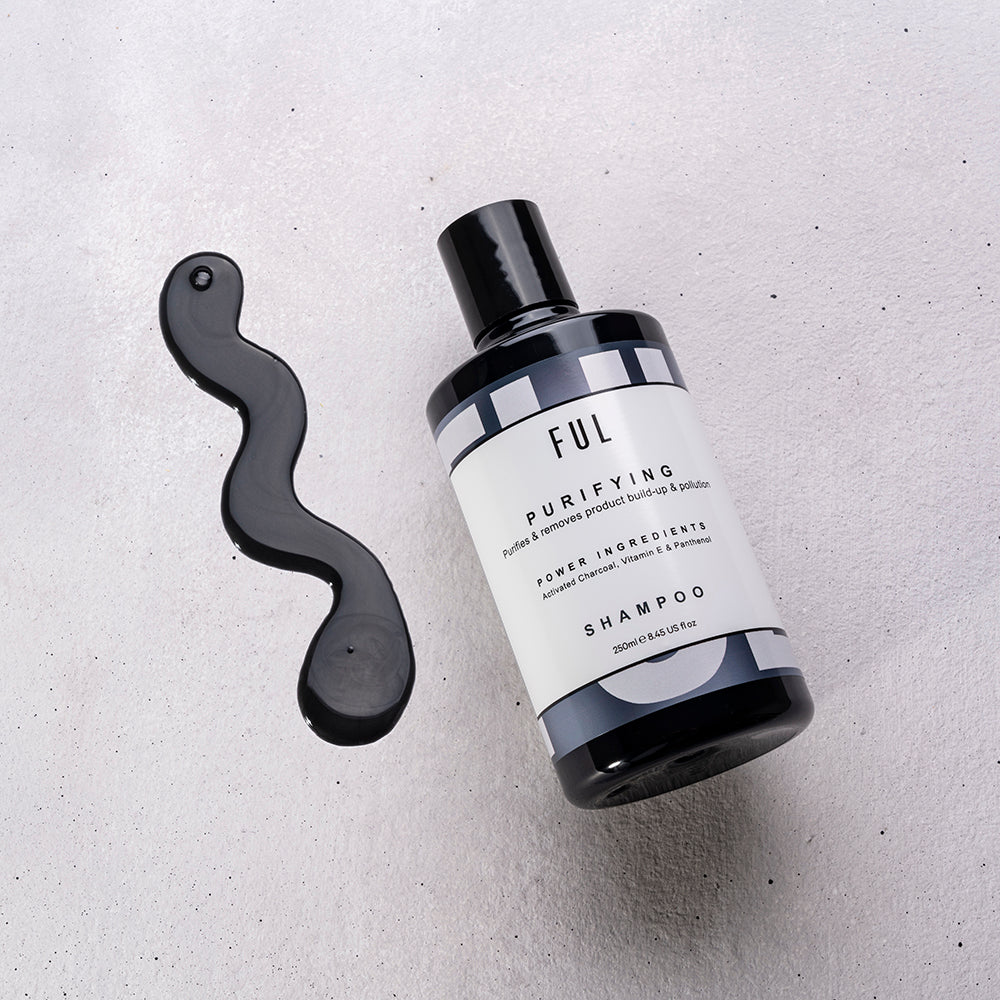Greasy Hair
Greasy hair can be a frustrating and sometimes embarrassing issue for many. Characterised by an oily scalp and limp, lifeless locks, it can often feel like a battle to keep hair looking fresh and voluminous. However, with the right approach, managing greasy hair can be simpler than you think. Let’s explore the causes of greasy hair and delve into effective strategies to combat this common hair concern.
Understanding Greasy Hair
Greasy hair results from excess sebum production on the scalp. While sebum is necessary for keeping hair healthy and moisturised, too much of it leads to that undesirable greasy look. Several factors contribute to oily hair, including genetics, hormonal changes, lifestyle, diet, and incorrect hair care products.
Tips for Managing Greasy Hair
1. Choose the Right Shampoo
Select a shampoo specifically designed for oily hair. These products are formulated to cleanse the scalp effectively without stripping it completely of natural oils. The FUL Charcoal Purifying Shampoo is designed to purify congested scalps and rinse the hair of unwanted build up from oil, dirt, pollution and styling products. Remember to also avoid shampoos that are overly hydrating or designed for dry hair, as they can exacerbate oiliness.
2. Wash Hair Properly
While it might seem logical to wash greasy hair frequently, over-washing can actually stimulate more oil production. Aim to wash your hair every other day or even less frequently if possible. When you do wash your hair, ensure you're rinsing thoroughly to remove all traces of shampoo and conditioner.
3. Use Conditioner Wisely
Conditioners are essential for keeping hair soft and manageable but avoid applying them to the scalp. Focus on the mid-lengths to ends of your hair, and opt for a lightweight conditioner, like the FUL All Rounder Conditioner.
4. Avoid Touching Your Hair
Frequently touching your hair can transfer oils from your hands to your hair, increasing greasiness. Try to keep hair-touching to a minimum.
5. Use Dry Shampoo
Dry shampoo can be a lifesaver for greasy hair. It absorbs excess oil and adds volume. However, it’s a temporary solution and should not replace regular washing with water and shampoo.
6. Consider Your Diet
Diet plays a significant role in skin and hair health. Consuming too much fatty, greasy, or sugary food can stimulate oil production. Focus on a balanced diet rich in fruits, vegetables, lean proteins, and whole grains.
7. Limit Heat Styling
Frequent use of hairdryers, straighteners, and curling irons can stimulate oil production. When you do use these tools, apply a heat protectant spray and keep the temperature moderate.
8. Regular Haircuts
Regular trims help maintain hair health, reducing the likelihood of oil accumulating on damaged hair ends.
Home Remedies for Greasy Hair
Several home remedies can help manage oily hair:
Apple Cider Vinegar Rinse: It can help balance the pH of your scalp and reduce oiliness.
Aloe Vera: Mixed with a mild shampoo, aloe vera can soothe the scalp and control oil production.
Tea Tree Oil: Known for its antibacterial properties, it can be effective for an oily scalp when diluted and applied sparingly.
Conclusion: Embracing Balanced Hair Care
Managing greasy hair is all about finding the right balance in your hair care routine. By understanding the needs of your scalp and hair, choosing appropriate products, and adopting healthy lifestyle habits, you can keep greasy hair at bay. Remember, every hair type has its unique beauty and challenges; embracing and caring for your hair in its natural state is key to enjoying healthy, vibrant locks.


